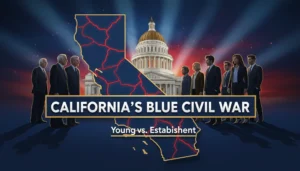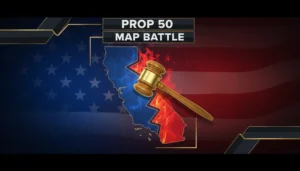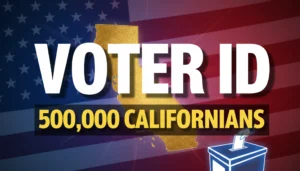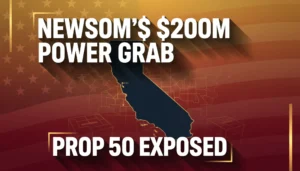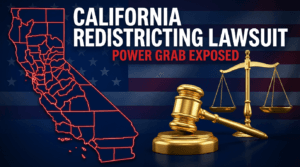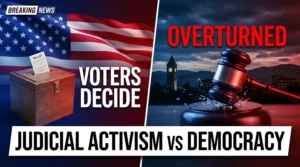State of Emergency or Federal Overreach? Inside Newsom’s Blockbuster Lawsuit Against Trump


San Francisco, CA — August 2025
A legal and political firestorm has erupted in California as Governor Gavin Newsom pursues a landmark lawsuit against former President Donald Trump, challenging the controversial federal deployment of National Guard troops to Los Angeles. The case, now unfolding in a federal courtroom in San Francisco, is being closely watched as it tests the boundaries of executive authority and the enduring tension between state and federal power. The Gavin Newsom lawsuit Trump case could set a precedent for how states and the federal government interact during times of crisis.
The Background: Civil Unrest and a Federal Response
Tensions first ignited in July 2025, when a controversial police shooting in South LA sparked widespread protests. While most demonstrations were peaceful, isolated incidents of violence led to property damage, injuries, and a citywide state of emergency.
In response, former President Trump issued an executive order on July 13, activating and deploying more than 2,000 federalized National Guard troops to Los Angeles. The White House cited the “urgent need to restore order and protect life and property.” This order bypassed Governor Newsom and invoked the Insurrection Act—a rarely used law granting the president authority to deploy military force domestically under certain conditions.
Governor Newsom immediately condemned the move, calling it “an overreach” and “a violation of California’s sovereignty.” He argued that the state’s own National Guard and law enforcement agencies were already addressing the situation and that Trump’s unilateral action was unnecessary and unconstitutional. This set the stage for the Gavin Newsom lawsuit Trump legal battle that would soon unfold.
The Lawsuit: Gavin Newsom Takes Trump to Court
On July 15, Governor Gavin Newsom and California Attorney General Rob Bonta filed suit in the U.S. District Court for the Northern District of California. The lawsuit alleges that the Trump administration’s actions violated the Posse Comitatus Act of 1878, which prohibits the use of federal military personnel for domestic law enforcement unless expressly authorized by Congress. The suit also claims that Trump overstepped his authority under the Insurrection Act and infringed on the state’s Tenth Amendment rights.
At a press conference, Newsom declared, “The deployment of the National Guard to our streets without our consent is not only dangerous and unnecessary—it is unconstitutional. This Gavin Newsom lawsuit Trump situation is about defending California’s rights and protecting our democracy.”
California’s legal team is seeking an immediate injunction to halt the federal deployment and a declaratory judgment affirming the state’s authority over its own National Guard units in the absence of Congressional approval or a formal request from the state.
The Federal Government’s Defense
The Trump administration, represented by Justice Department lawyers, argues that the president has broad discretion under the Insurrection Act to deploy military forces—including the National Guard—during times of insurrection or domestic violence. They claim the deployment was both lawful and necessary to restore order in Los Angeles, and that the Posse Comitatus Act does not apply when the National Guard operates under federal authority.
A Justice Department spokesperson stated, “The president’s first duty is to preserve public safety and enforce the laws of the United States. The deployment of the National Guard in Los Angeles was lawful, limited in scope, and necessary to restore order in a time of crisis. The Gavin Newsom lawsuit Trump has no constitutional merit.”
Legal and Historical Context
The Gavin Newsom lawsuit Trump case is not the first time a state has challenged federal authority over the National Guard. Legal experts point to the 1957 deployment of federal troops to Little Rock, Arkansas, and the 1992 Los Angeles riots. However, the current case stands out because California did not request federal intervention and explicitly opposed it.
“Historically, federal intervention with military force in states has almost always occurred with the consent or at the request of the state government,” explains Dr. Marisa Mendoza, a constitutional law professor at UCLA. “The Gavin Newsom lawsuit Trump case raises new questions about the limits of presidential power and states’ rights under the Tenth Amendment.”
The Posse Comitatus Act, passed after the Civil War, was designed to limit the federal government’s ability to use the military for domestic policing. The Insurrection Act provides exceptions but is rarely used in modern times.
Political Ramifications
The Gavin Newsom lawsuit Trump has become a national flashpoint, fueling debate about state sovereignty and federal overreach. Supporters of Newsom argue that the lawsuit is a vital defense of state rights and a necessary check on executive power. “If the president can deploy troops anywhere, anytime, without state consent, what’s to stop future abuses?” asks State Senator Maria Hernandez (D-Los Angeles).
Opponents, however, argue that Newsom is politicizing the issue and undermining efforts to maintain public safety. “The president acted to protect lives and property when local officials lost control,” said Republican Assembly Leader James Carmichael. “This Gavin Newsom lawsuit Trump is a distraction that puts politics ahead of public safety.”
The case has also galvanized activists and prompted demonstrations on both sides, reflecting the polarized nature of the debate.
The Courtroom Battle
As the Gavin Newsom lawsuit Trump proceeds, both sides are presenting expert witnesses and legal arguments. California’s team highlights the state’s experience in managing protests and claims the situation was stabilizing before federal troops arrived. They argue Trump’s action was both unnecessary and unconstitutional.
Trump’s legal team stresses the scale of the unrest and the president’s authority under the Insurrection Act, insisting federal intervention was crucial.
Key questions the court must address include:
- Does the president have unlimited discretion under the Insurrection Act to deploy troops for law enforcement within a state?
- Does the Posse Comitatus Act restrict the use of the National Guard under federal orders?
- How much deference should courts give the executive branch on matters of public safety?
Potential Outcomes and National Impact
A ruling in favor of California in the Gavin Newsom lawsuit Trump case could limit presidential authority to deploy troops domestically and reinforce state autonomy. It could also lead Congress to clarify the Insurrection Act.
A victory for Trump would set a precedent for federal intervention over state objections and expand executive power during domestic crises.
Legal analysts expect appeals regardless of the outcome, with the possibility that the Supreme Court will ultimately decide the Gavin Newsom lawsuit Trump case. “This is a case with enormous stakes for American federalism,” notes Dr. Mendoza. “The court’s decision will shape the relationship between the states and Washington for years to come.”
Conclusion
As the trial continues, the nation watches California—a state often at the forefront of legal and political battles. The Gavin Newsom lawsuit Trump is more than a legal dispute; it is a defining moment in the ongoing struggle over power, rights, and democracy in the United States.
Stay tuned for ongoing coverage of the Gavin Newsom lawsuit Trump from CalMatters and the Los Angeles Times.



